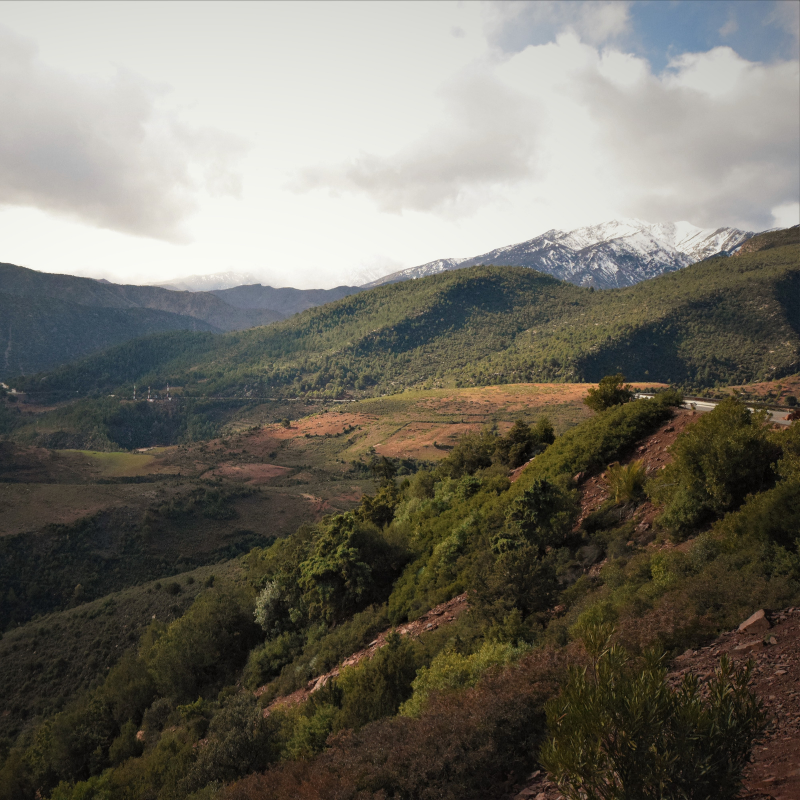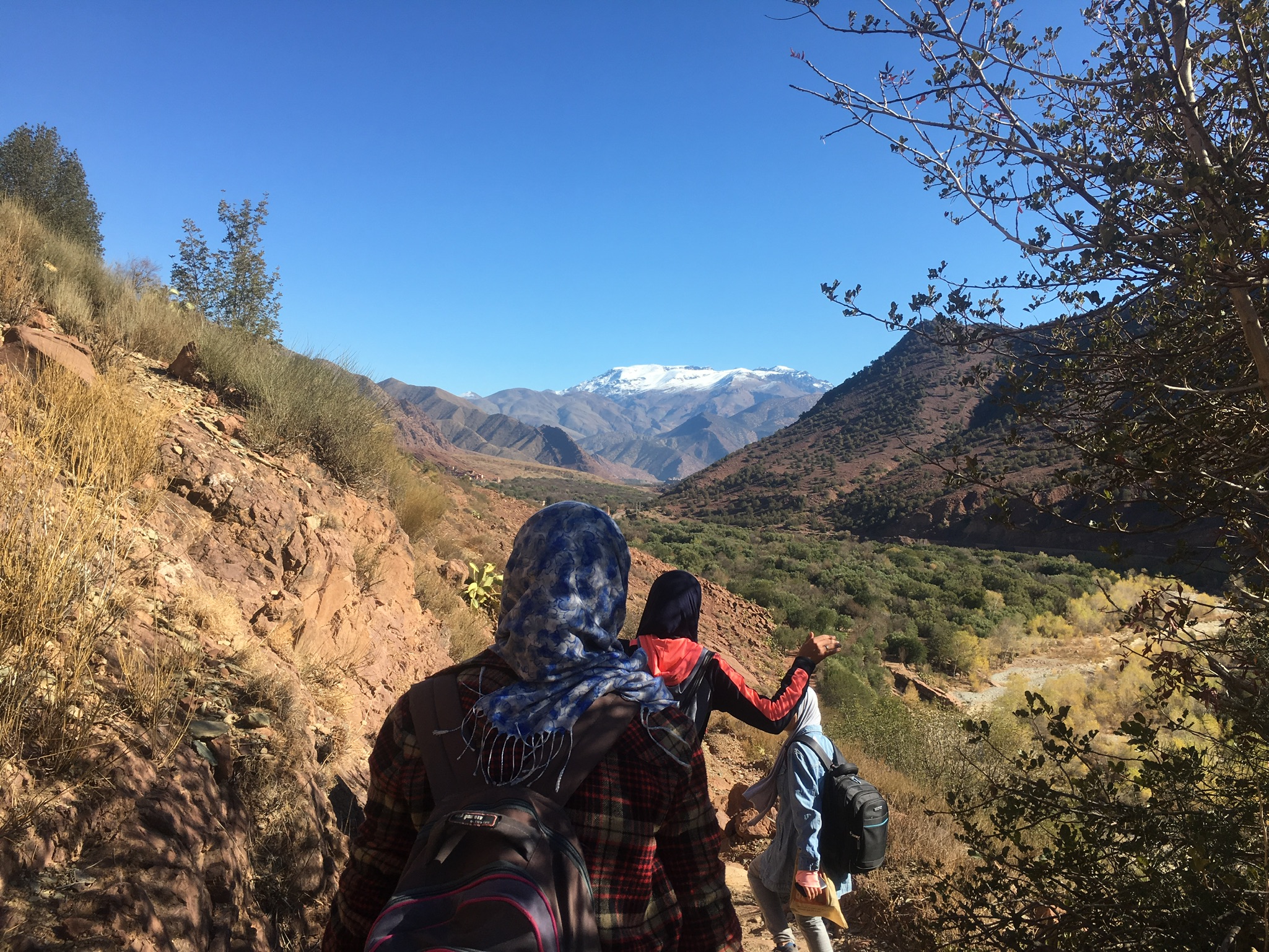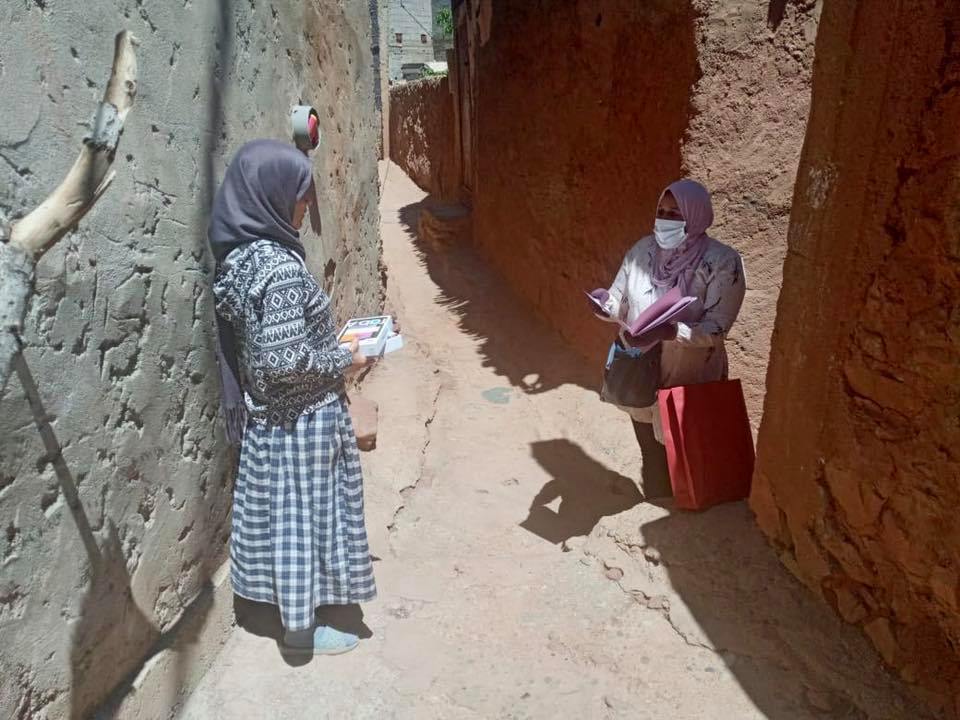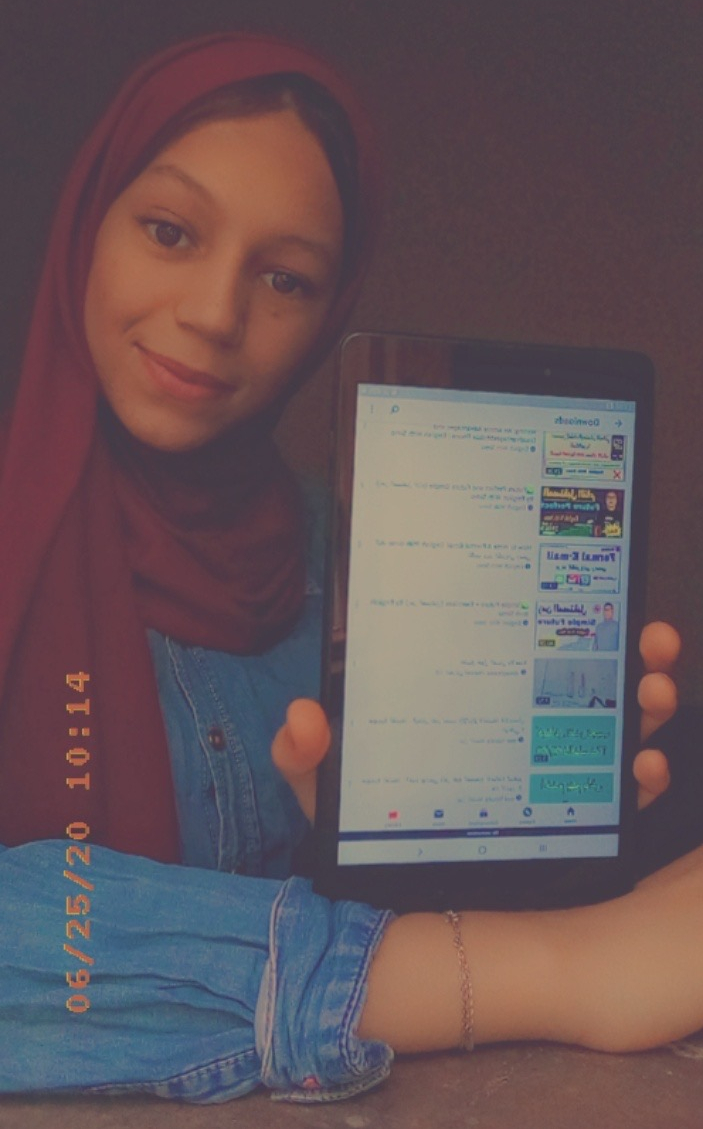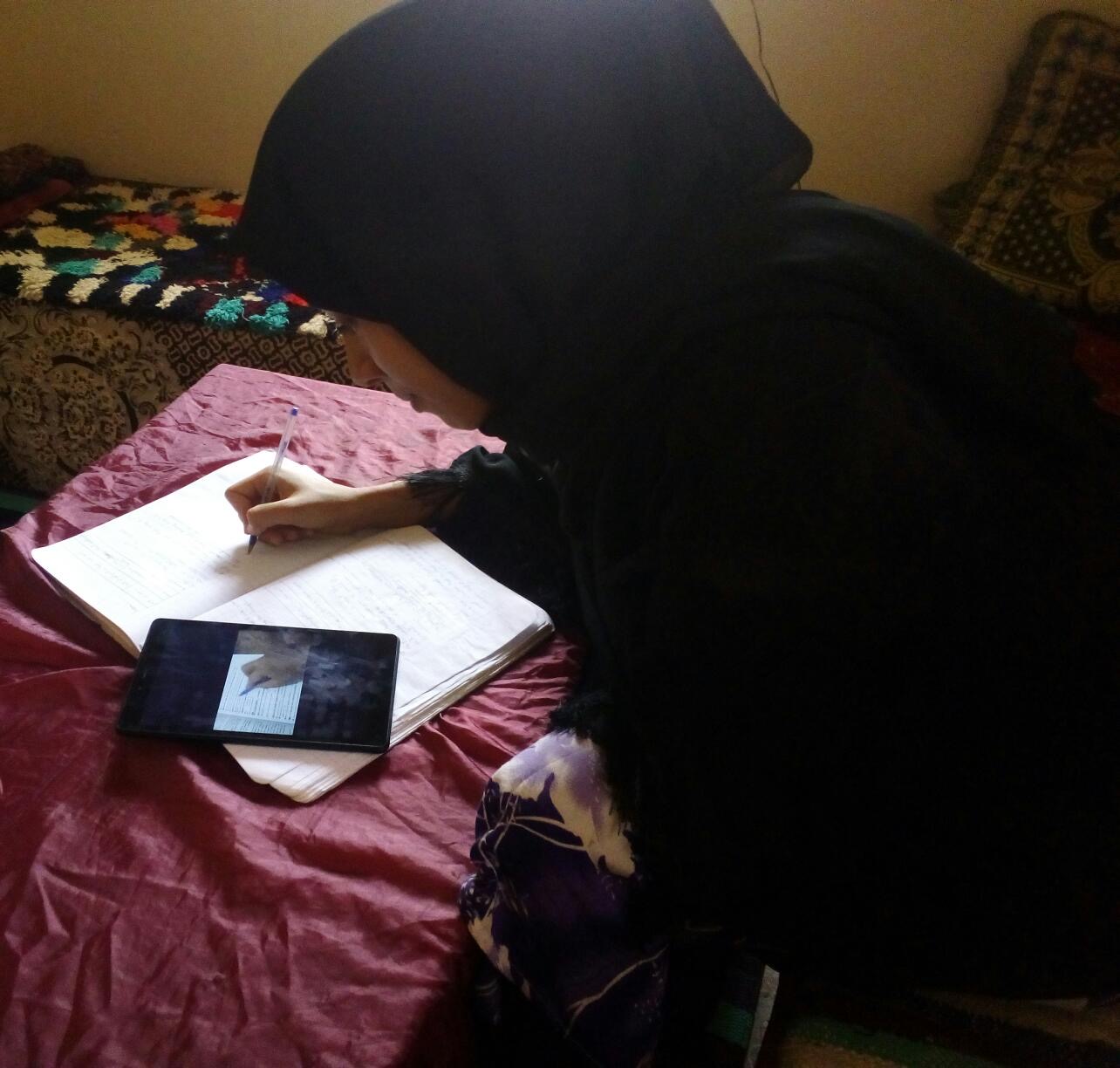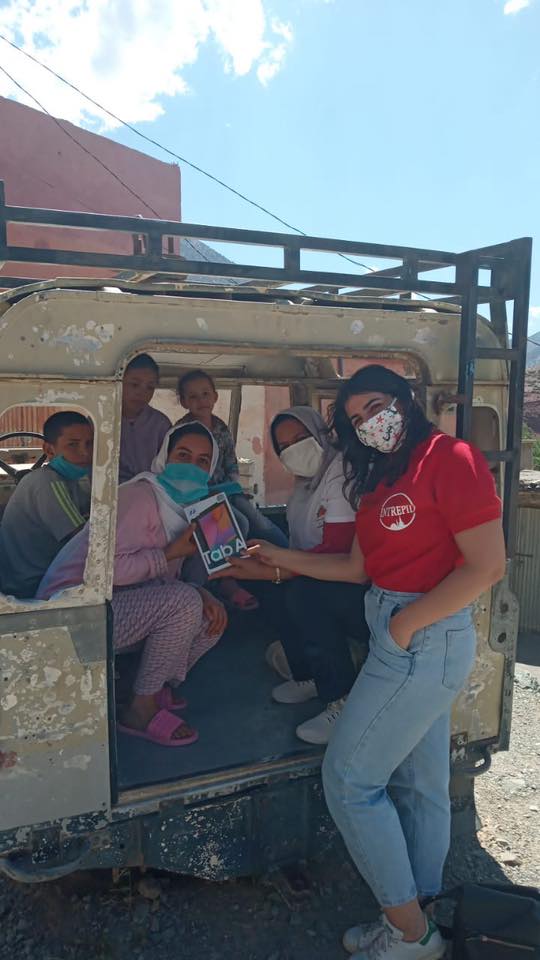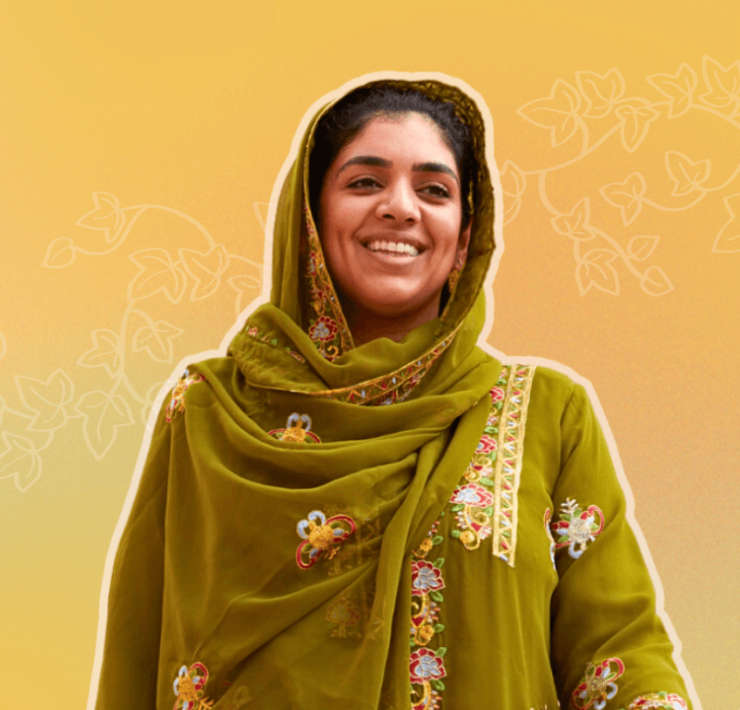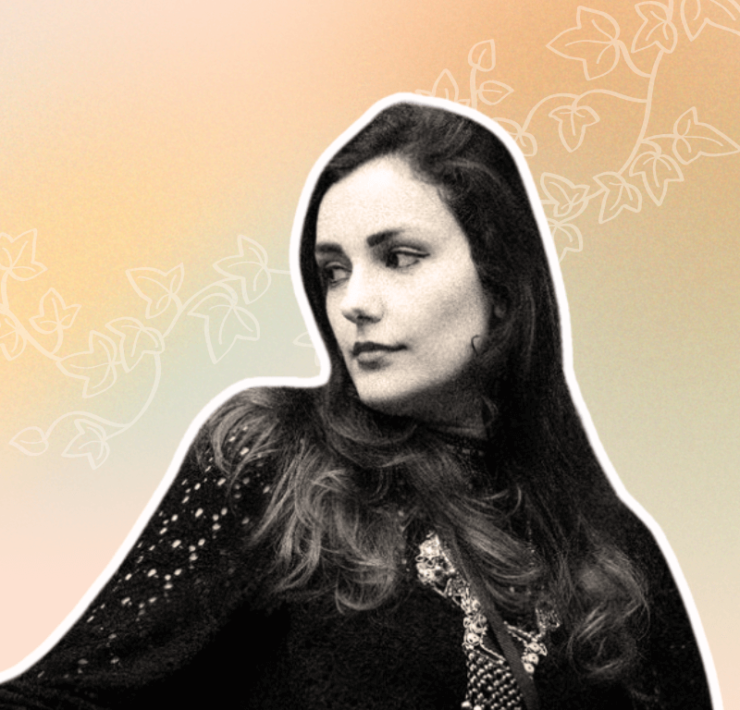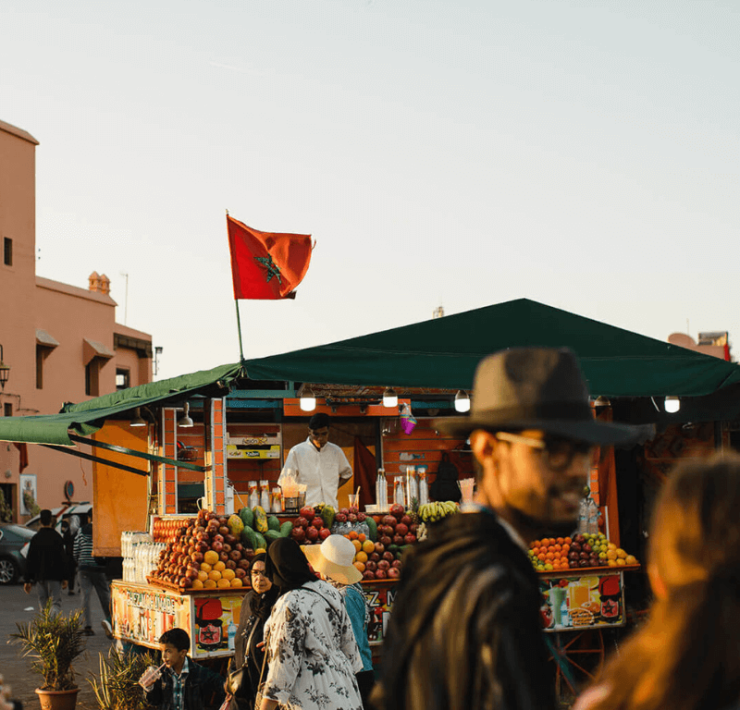In May 2020, Pink Jinn shared some of the stories of life during lockdown for girls living in the remote Atlas Mountains. These girls live in boarding houses run by Education for All, an NGO that runs boarding houses for girls from remote villages in the High Atlas Mountains of Morocco, giving them the chance to continue their secondary education. The houses are built close to the only high school in the region and offer food, board, and an internet connection, all for free.
As a former volunteer for EFA, I’m delighted to be able to offer an update on the situation of the girls, which highlights the power of simple technology and online fundraising platforms to make a huge difference to these girls’ futures.
Very few girls from rural communities in Morocco get the opportunity to continue their education beyond primary school. Some of the girls live up to 70km from school, and with few families owning transportation, a daily commute up and down a rocky mountain path that traverses rivers and ravines is simply impossible. As a result, obtaining a place to live in one of the EFA boarding houses is often a lifeline for these girls, who without the opportunity to study, may find themselves married from a very young age.
 Girls in the High Atlas making the journey to school
Girls in the High Atlas making the journey to school
On 16th March, the Moroccan government made the decision to close all schools and boarding houses across the country in response to the COVID-19 pandemic. For the girls at EFA, this meant that the houses, which have become their homes during their high school studies, also had to close. The girls returned to their remote villages in the remote High Atlas Mountains, where they’ve remained for the past three months.
Whilst many students from cities like Rabat and Casablanca were able to continue their studies at home online, for most of the girls at EFA, remote learning was impossible. Although the Moroccan government is offering online lessons, and there are excellent learning tools available, many of the EFA girls either don’t have a device or can’t afford the internet data charges needed to access these vital resources. The lockdown has really highlighted the huge digital divide faced by girls living in remote, rural areas.
For EFA, it is essential that young people do not miss out on education, whether it is due to geography, poverty or pandemics. The girls have already overcome incredible obstacles to get the chance to continue their high school studies, and they didn’t want to let all their hard work go to waste so close to the end of their studies. That is why EFA launched Project Tablets, a fundraising campaign to enable the NGO to buy and distribute tablets and SIM cards with internet data to the girls due to sit their Baccalaureate leaving exams this summer.
Thanks to the overwhelming support on the Just Giving page, EFA were able to reach their fundraising target, and 3rd June marked the day that they delivered the first tablets to the girls. It wasn’t easy to purchase or deliver these during the ongoing lockdown, but with help from EFA supporters, Zina and Hala at Intrepid Travel and the amazing team of Housemothers, they were able to purchase and get the authorisation to deliver them.
 A schoolgirl receiving her tablet from EFA
A schoolgirl receiving her tablet from EFA
Now, six weeks later, EFA got in touch with some of the girls to learn about their experiences of getting connected during the pandemic. The interviews were carried out in Arabic and have been translated into English.
Saida
What was studying at home like for you before you received your tablet?
For me, it was always very difficult to attend classes remotely. My circumstances would often prevent me from attending the classes offered by my teachers because if I didn’t have internet credit, I couldn’t attend the class.
How did you receive your tablet?
For me, it was a truly wonderful surprise to hear about the tablets, and EFA came to my village to deliver a tablet to me.
What do you use your tablet for?
I use it to explain the difficult points in my lessons and I also watch motivational videos on YouTube.
How are you preparing for your upcoming exams?
I am reviewing my lessons and working on some examples of the past years’ exams. Now I have the tablet, I feel so much more confident about taking the exam.
What do you hope to be doing next year?
In September, I’m hoping to study English at university.
Youssra
How has online studying been for you over the past three months, Youssra?
For me, studying was very difficult due to my family’s financial situation. The teachers teach daily lessons via WhatsApp, but this requires a lot of money to pay for the Internet connection needed to communicate with the teachers.
Even though I have a smartphone, it is poor quality and I can’t use it to communicate with my teachers. The screen is very small and it’s also impossible to use it to download the videos available explaining our lessons on YouTube.
How did you feel when you heard you would be receiving a tablet?
When EFA told me that I would receive the tablet, I was very happy. It was also a big source of motivation to me to learn that there are people out there who don’t even know me, but who go to great efforts for my success. This has multiplied my own efforts and my determination to succeed.
How did you receive your tablet?
I went to another nearby village, where I met with EFA and picked up the tablet.
What are you using your tablet for?
The tablet is helping me in my studies a lot. I download the lessons via YouTube or in PDF format and I study with them.
When I need some quiet to study, I go out on a picnic and I take the device with me to study. I can also now go on walks and study at the same time, which is a great way to use my time productively.
Has the tablet helped you feel better prepared for your exams?
In fact, the tablet has been like a catalyst for my revision. After owning this tablet, I feel much more confident about the exam.
What are your hopes for life after EFA?
After the exams this year, I hope to study law to achieve my goal of becoming a police officer.
“Thank you EFA for your great efforts in educating rural girls and for your motivation and your support in helping us to become the women of tomorrow, who will lead Morocco (and why not the world!) towards a better future.”
After being in lockdown in their villages for three months, often without any form of internet connection, the girls are now able to study to achieve their dreams. Not only will the tablets help the girls to study and catch up on the lessons they’ve missed, it will also get them comfortable with the technology and skills needed to thrive in their future education and employment.
It is essential that young people do not miss out on education, whether it is due to geography, poverty or pandemics. EFA is proud to be tackling these obstacles so these young women can realise their full potential in life! Their potential also raises the potential of their communities and benefits the next generations.
 Another tablet is delivered to a schoolgirl in the High Atlas
Another tablet is delivered to a schoolgirl in the High Atlas
To find out more about EFA, click here.
To make a donation, click here.
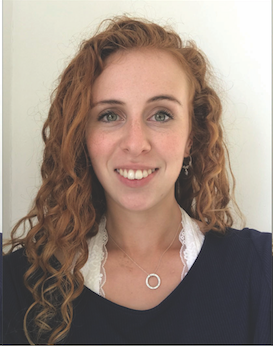 Ella Williams is an incoming PhD student at Oxford University, where she also obtained an MSc in Modern Middle Eastern Studies in 2019. Her interests lie in gender, violence against women, Amazigh culture, education and international development in rural North Africa. In 2019, she spent four months volunteering as an English teacher in the remote High Atlas region of Morocco.
Ella Williams is an incoming PhD student at Oxford University, where she also obtained an MSc in Modern Middle Eastern Studies in 2019. Her interests lie in gender, violence against women, Amazigh culture, education and international development in rural North Africa. In 2019, she spent four months volunteering as an English teacher in the remote High Atlas region of Morocco.
If you enjoyed this, you might also like:
6 social enterprises supporting local communities in the Middle East and North Africa
Essential resources on racism and anti-blackness in the Middle East
3 ethical food projects helping victims of conflict in the Middle East and North Africa

